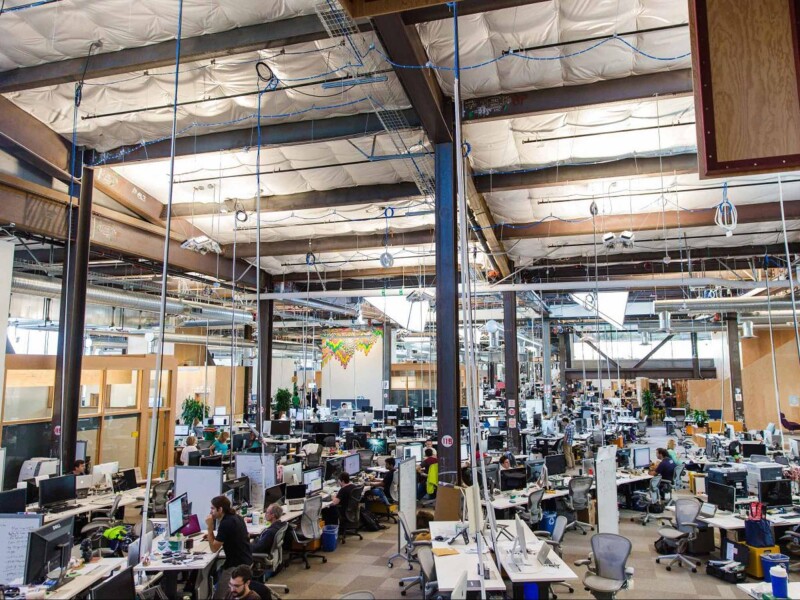“That job sounds awesome, but I’m not looking for anything new right now. I love where I work.”
It’s a statement you don’t tend to hear too much, and yet it’s one I’ve found myself repeating quite a lot over the last two years.
As software developers, we’re very lucky right now. We’re in demand. Job offers with high salaries – though not quite at the eye-watering level our American colleagues can demand – are plentiful for those with a few years’ experience. Making the decision between one organisation and the next can be difficult, so I’m going to lay out the criteria I have when choosing my next role. If maybe along the way I convince you that Media Suite is a pretty good fit for you and perhaps interest you in working here then I guess there’s no harm in that either.
Money or the Mission?

I’m not sure about you, but I feel incredibly lucky. I was born in the late 70s. My parents were either unusually prescient or effectively advertised at, because in 1984 an Acorn Electron arrived at our house.

As I hit Uni, the Web had just become a thing, and I got to watch first hand the initial Dot Com boom, the rise of Google, and then social media. It’s been a huge privilege for me to be a part of.
Like many of my colleagues, I find what I’m working on is incredibly important to me – in many ways I feel an obligation to ensure my privilege benefits more than just me. As a father with a young family living in an expensive part of New Zealand, I’m focused on the pay cheque. I definitely find myself conflicted.
My advice here is take the job that pays you what you need but satisfies whatever requirement you have for meaningful work. It’s still a compromise, and ‘what you need’ is a varying level for all of us, but having more money is something you quickly become accustomed to and lose any joy in. Doing something you believe has value adds meaning to every day.
Keep Learning
Some jobs can get pretty tedious, pretty fast. Take a feature off the backlog, implement, deploy, repeat…
Sure, they are different problems, but fundamentally 90% of what most developers do is finding different ways of capturing data, storing it in a database, and then displaying it to the user.
One of the ways we can keep ourselves motivated, in addition to genuinely believing in the goal, is to continue to learn. In fact, if you’re lacking a desire to keep learning, it won’t be long before your skills become outdated and you’ll be superseded by the young and hungry.
Working with different clients across different problem domains can really help here. Not only will you have to learn about the client’s domain almost as well as they do in order to design an effective solution, but each new domain will force you to solve different problems. It might be GIS mapping, making predictions off a large dataset or learning a new framework – it’s necessary to learn quickly and author effectively. This ongoing challenge keeps the job fresh and definitely staves off the Sunday Fear.
Autonomy
There was a Gallup (a well-known analytics company) study carried out in 2015 that can be boiled down to ‘People join companies and leave managers’. In fact in that poll, 50% of the people who had left a job recently said they did so because of difficulties with their management. Almost the best thing you can do as a manager is get out of your staff’s way and let them do what you paid them to do. You are probably paying them pretty well, so treat them like the grown-ups that they are.
Give your developers autonomy to choose.
- Choose their own hours – within the bounds of what works with the project team.
- Choose their own development tools – as long as it’s not so obscure such that no one can help if they have a problem.
- Choose whether to come into the office today – as long as they’ve established credibility at delivery and are not required on-site for some reason.
- Choose whether they need new hardware – as long as they don’t squander it on ‘toys’.
Given this flexibility, people aren’t trying to game the system for small wins. They’ll make the right choices for the good of the company, because they’ll understand that the company’s success is ultimately their success. Speaking of that…
Make The Team Part of the Victory
No one likes working for The Man. The faceless corporate boss with the corner office, the PA guard-dog and the tendency to treat employees like digits to move around a resourcing spreadsheet. I’ve worked for a few of those. The best that can be said is you develop a sort of Dunkirk spirit*, with team members pulling together for each other, but never really caring about the company they work for.

Much better if the victories are shared and celebrated. Financial gains end up benefiting everyone, whether through increased wages, better benefits, bonuses, share schemes or other more interesting ways.
As an example of the latter, Media Suite have recently started working with a homeless charity. We’re building an app to help police house vulnerable people in a more timely fashion. We’re using some recent wins to be able to fund some work that will benefit the more vulnerable members of New Zealand society, and it’s opportunity we’re deeply grateful to have.
Working Environment
At Facebook, a software engineer can expect to make over $235k NZD a year. Yet they put them in an environment like this:

I’m not sure about you, but to me this looks like a factory floor. It doesn’t strike me as a place to do your best thinking. Still, we’re not all the same and some like the energy that is given off by a room like this. I work from home because I get to choose when I’m interrupted, and a good employer will show you some flexibility along these lines.
At Media Suite we try to walk this line by having an open plan office, but with break-out rooms if you need some quiet space or the freedom to work from elsewhere. It’s a good compromise that suits most people.
Choose Wisely
You’re probably going to be with your next employer for at least two years. That’s a long time to not like what you do, so think carefully about your choices. The right job can provide you with a good salary, good friends and genuine fulfilment. The wrong job can feel like nothing but a chore you fight to get through, while spoiling your weekend with the thought of Monday.
Don’t be in that job. If you’re good at what you do, then you’ve got choices. Think about what you want, understand where you can compromise and where you can’t, and then throw yourself into it. Choose wisely.














